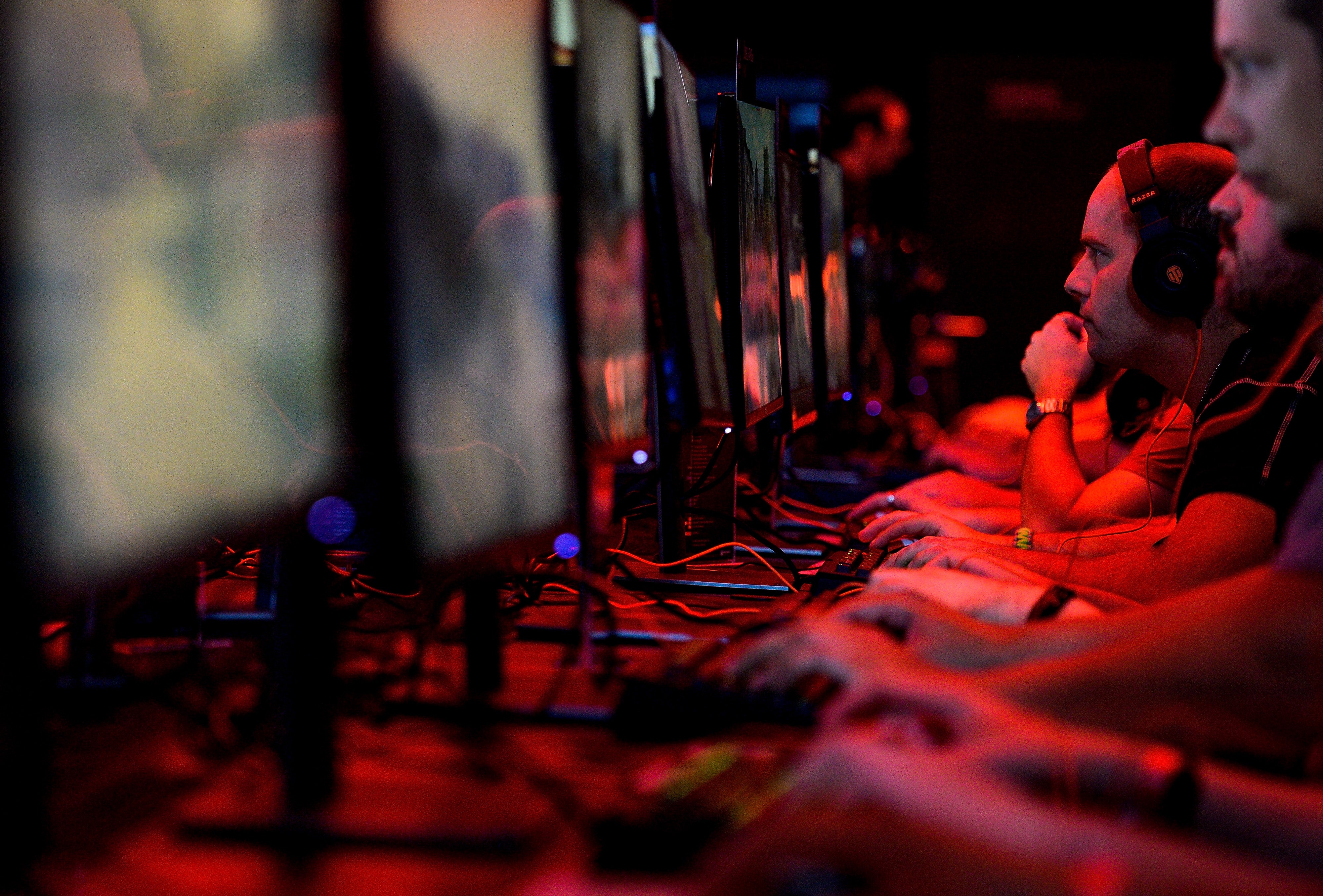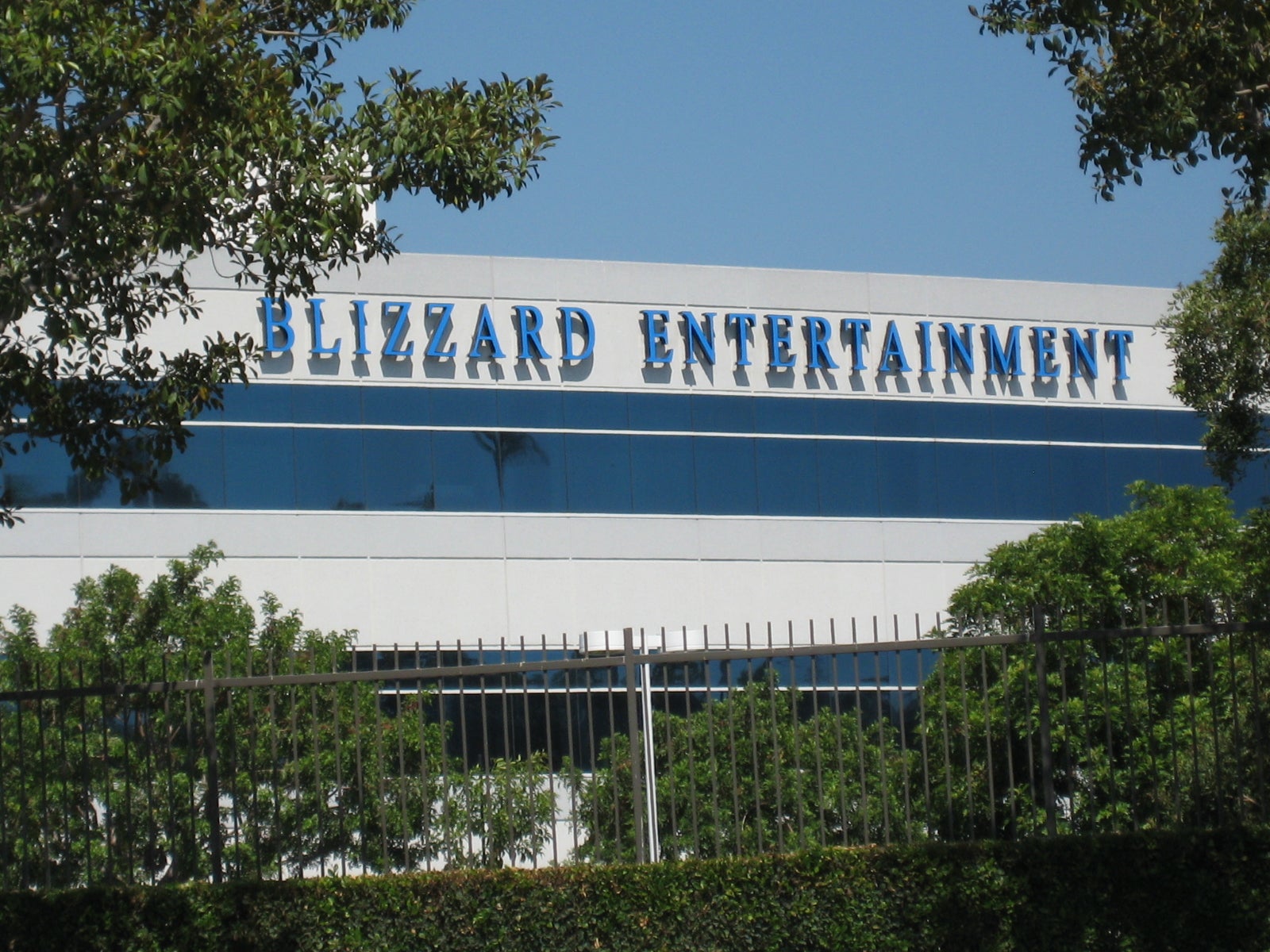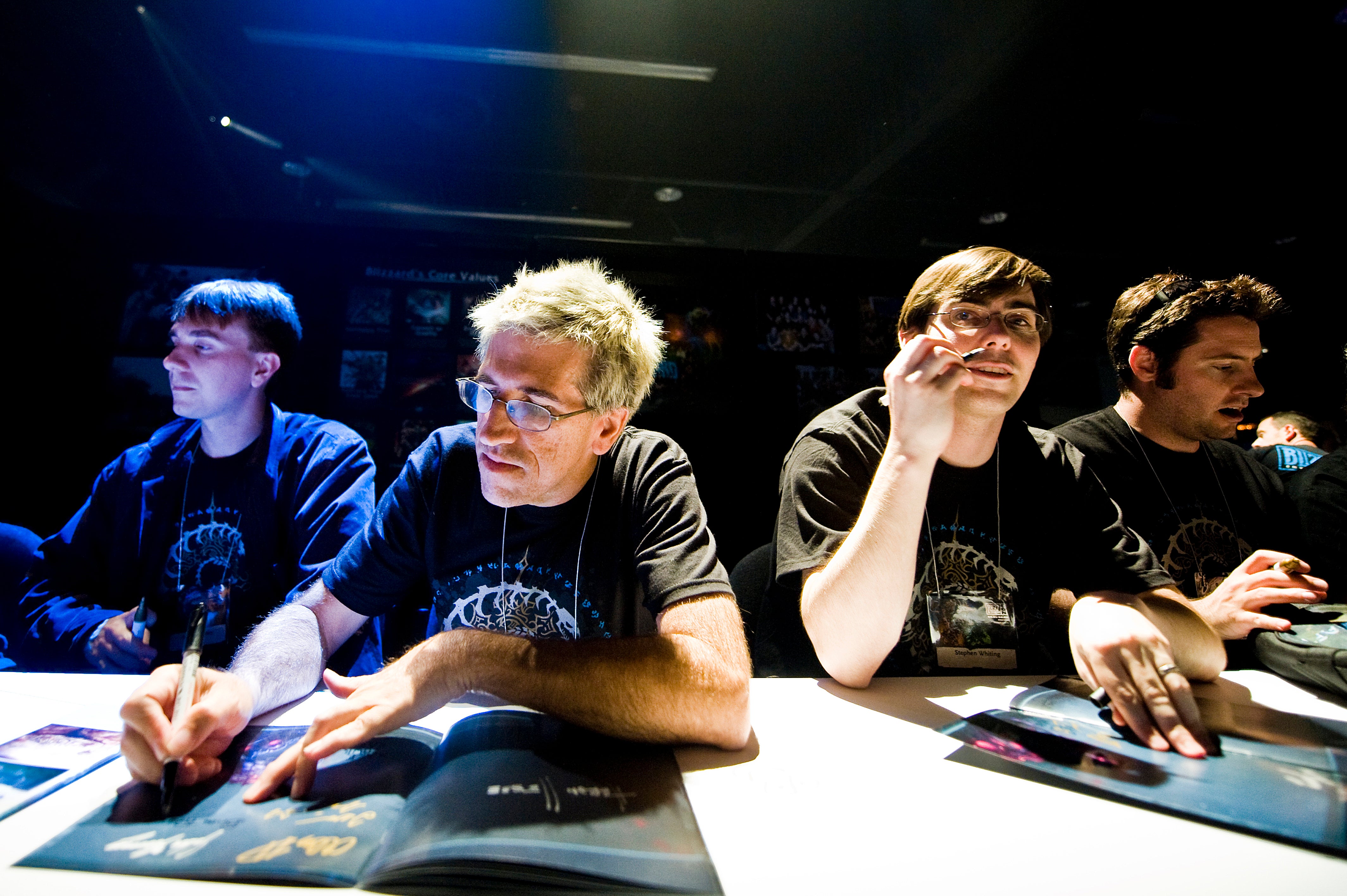Swinger parties to legal dramas: The dream job turned nightmare of video game company Blizzard
Microsoft acquired Blizzard in 2022 for $68.7bn, making it the largest acquition in the history of the video games industry. A new book dives into the company before that record-breaking deal, writes Graig Graziosi


Your support helps us to tell the story
This election is still a dead heat, according to most polls. In a fight with such wafer-thin margins, we need reporters on the ground talking to the people Trump and Harris are courting. Your support allows us to keep sending journalists to the story.
The Independent is trusted by 27 million Americans from across the entire political spectrum every month. Unlike many other quality news outlets, we choose not to lock you out of our reporting and analysis with paywalls. But quality journalism must still be paid for.
Help us keep bring these critical stories to light. Your support makes all the difference.
Nerf darts, porn, and vomit.
One might expect these in a frat house after a drunken night of hazing pledges, but it’s a bit more surprising to find them in the offices of company that would one day be bought by Microsoft for $69bn.
In Bloomberg journalist Jason Schreier’s new book, Play Nice, he chronicles the 30-year history of Blizzard, which produced some of the most beloved titles in video game history, but was also rocked by #MeToo scandals, and was later the subject of the largest acquisition in gaming industry history.
Blizzard’s first hit was Warcraft, a legendary real-time strategy game that would eventually inspire World of Warcraft, perhaps the most well-known MMORPG (massively multiplayer online role-playing game) in all of gaming. That game, as Schreier notes in his book, was born of the programmers at the company playing a similar game — Dune 2 — and deciding they wanted to make their own version.
The company started as a group of unruly programmers — some who slept overnight in the office on mattresses they’d brought in — tasked with porting video game titles across platforms. Porting is when programmers take an existing game and retool its coding to make it functional on another system. When Rockstar Games takes Red Dead Redemption — built for Xbox and Playstation — and makes it accessible for play on PC, that is porting.
After the success of Warcraft, the company went on to create two other beloved series; Starcraft — a sci-fi game similar to Warcraft that would go on to become essentially a national sport in South Korea — and Diablo, which just released its fourth sequel last year.
Blizzard was churning out hits, and fans of its titles eagerly awaited new installments of their favorite games. The company proved its worth and merged with another gaming behemoth, Activision — the company that makes the continually popular Call of Duty franchise — in 2008.
But while the company was an innovator in the gaming industry, its office culture, according to Play Nice, remained painfully stuck in the past.

In its early days the demographics at the company were overwhelmingly young and male. Play Nice paints scenes of late night Guitar Hero sessions, Nerf battles, and a sea of destroyed office chairs littering the company’s workspaces. A programmer might leave their desk and return to find someone had pulled up pornography on their computer while they were away, according to Schreier.
But no one felt the stagnation of the company’s culture more than the women who worked at the company. At one point, Schreier reports that “near every top executive at Blizzard was involved [romantically] with someone lower than them at the company.”
The alleged boys club mentality at the company saw daylight in 2023 when the California Department of Fair Employment and Housing sued Activision Blizzard alleging that women working at the company faced “constant sexual harassment” and discrimination, The Verge reported at the time. That case came after Activision Blizzard settled another lawsuit with the US Equal Employment Opportunity Commission in 2023 that alleged employees were subject to a toxic work environment at the company.
The settlement in the EEOC case established a consent decree at the company and required Activision Blizzard to create an $18m settlement fund to compensate its employees.

The allegations were good for employees who were seeking better working conditions, but became a nightmare for Microsoft, which had begun its acquisition of the company for an unprecedented $68.7bn in 2022 and was battling the Federal Trade Commission over anti-competition concerns when the allegations arose.
Schreier delves into the complaints and reporting inaccuracies, around the company at the time, debunking some of the stories. In one infamous incident, a pair of employees posed with a picture of the now disgraced Bill Cosby in a hotel suite, which became a scandal that cost them their jobs despite the fact that the photo was actually taken before the allegations against Cosby were widely known — but also confirming that women often felt like second-class citizens in the company.
“They had to deal with being the only woman in a room in a development meeting, and not knowing what the reaction might be if they say something – in case they’re told they said something wrong, or a bad idea, because they’re the only woman in the room and therefore there’s going to be a current of sexism and discrimination there,” Schreier told Eurogamer in a recent interview about the book.
He recalls one story from the book in which a woman wore shorts into the office, only to be greeted by a male coworker who told her “your butt looks really great in those shorts.”

“And she was like, ‘Holy s***, I can’t believe I have to deal with this at work,’ and she never wore shorts to the office again,” he said. “Just having to deal with that stuff is so horrible and disheartening that going to these extremes about the Cosby suite and creating this illusion that isn’t quite true, does a disservice to the very real problems that women actually face.”
Schreier said he originally intended to tell the modern history of Blizzard — its acquisition by Activision and how that merger changed the company — but realized as he reported that modern Blizzard could not fully be understood without looking back at both the good and the bad.
According to Schreier, the lines between the professional and the personal were blurred when executives and lower-level employees would spend off-work hours visiting strip clubs and cigar bars. But things got even more personal than that for Blizzard employees.
In one section, Schreier recounts how “some of Blizzard’s highest-ranking developers and executives were swingers and would invite colleagues to sex parties” — which, while consensual, contributed to a culture where willingness to participate in out-of-work activities could influence office decisions, like promotions.
At the core of Play Nice is not just a deep-dive into a niche company in an ostensibly niche industry, but a chronicle of success, growing pains and a reckoning for outdated — and predatory — work culture at a time when American society demands more and better of employers.
Subscribe to Independent Premium to bookmark this article
Want to bookmark your favourite articles and stories to read or reference later? Start your Independent Premium subscription today.
Join our commenting forum
Join thought-provoking conversations, follow other Independent readers and see their replies
Comments